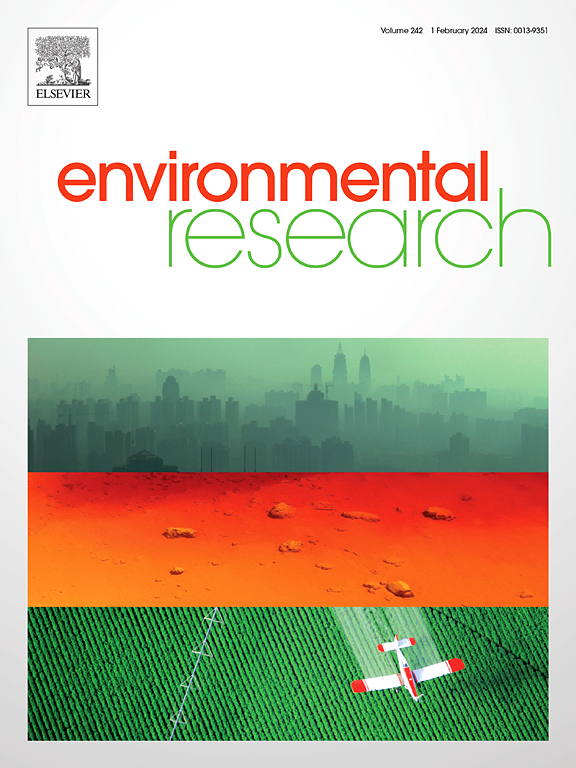Effect modification of fine particulate matter (PM2.5) related hospital admissions by temperature in Thailand: A nationwide time-series study
IF 7.7
2区 环境科学与生态学
Q1 ENVIRONMENTAL SCIENCES
引用次数: 0
Abstract
Background
In Thailand, the short-term exposure to particulate matter (PM) has been associated with increased hospital admissions. However, whether ambient temperature would modify this association remains unknown, especially in tropical regions. This study performed with 6 years data aimed to explore the association between short-term exposure to PM2.5 and hospital admissions related to all cause and specific of diseases from 2013 to 2019.
Methods
Daily hospital admissions data were collected from the Ministry of Public Health, Thailand for the period from January 1, 2013 to August 31, 2019. We estimated the association between PM2.5 and hospital admission using a two-stage meta-analytical strategy. Temperature was categorized into three groups based on the province-specific distribution: low (≤25 %), moderate (25–75 %), and high (>75 %). A strata term between temperature group and PM2.5 was introduced to test the modification effect of temperature.
Results
There were 32,616,600 all-cause inpatient admission for all-cause hospitalization, diabetes, hypertension, ischemic heart disease (IHD), stroke (I60-I69), and chronic obstructive pulmonary disease (COPD) in Thailand during the study period. Each additional 10 μg/m3 increase in PM2.5, the patients in the low temperature group had a relative risk (RR) of all-cause hospital admission of 1.025 (95 % CI). This risk was comparatively lower than that of the moderate temperature group, and high temperature group (RR: 1.027; 95 % CI). The risk of hospital admission was highest on lag 0 day across all temperature groups and all diseases, and it was highest for the moderate temperature for all diseases except for hypertension.
Conclusions
The study suggested that short-term exposure to PM2.5 increased the risk of all-cause and cause-specific hospital admission, and the risk was higher for moderate and high temperature. In the context of climate change, it is vital to develop strategies to identify and mitigate the health impacts of PM2.5 and increased temperature.
求助全文
约1分钟内获得全文
求助全文
来源期刊

Environmental Research
环境科学-公共卫生、环境卫生与职业卫生
CiteScore
12.60
自引率
8.40%
发文量
2480
审稿时长
4.7 months
期刊介绍:
The Environmental Research journal presents a broad range of interdisciplinary research, focused on addressing worldwide environmental concerns and featuring innovative findings. Our publication strives to explore relevant anthropogenic issues across various environmental sectors, showcasing practical applications in real-life settings.
 求助内容:
求助内容: 应助结果提醒方式:
应助结果提醒方式:


